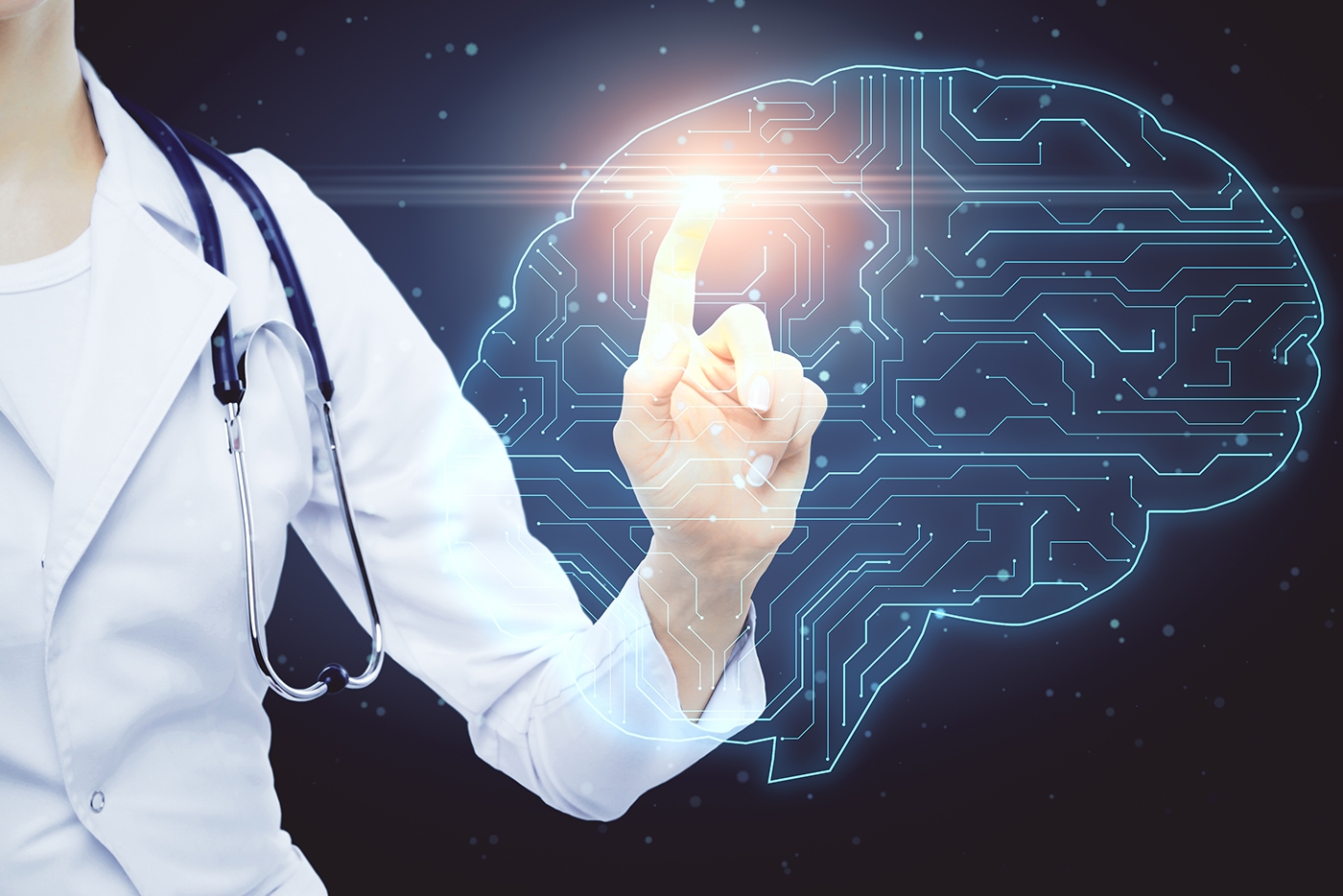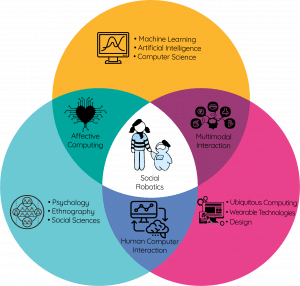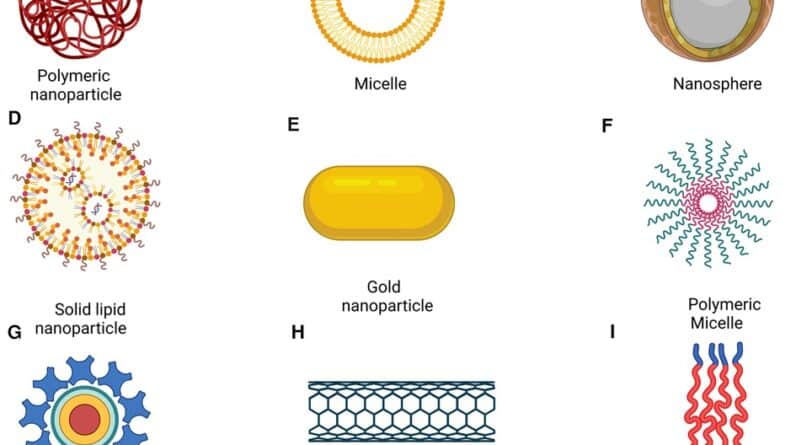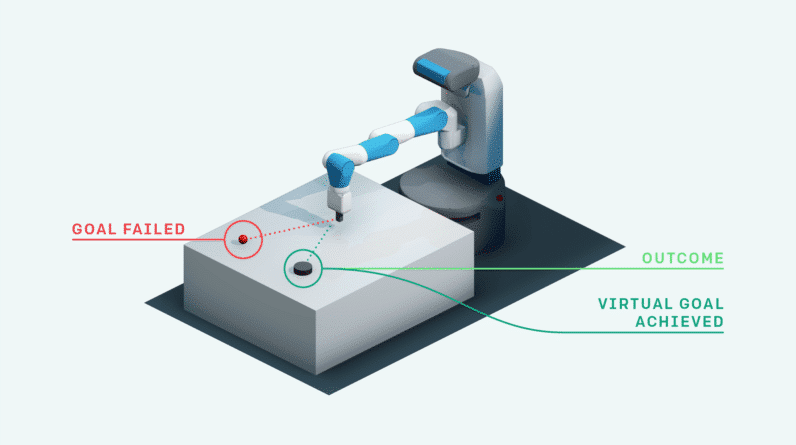In the ever-evolving field of healthcare, artificial intelligence (AI) is revolutionizing the way medical diagnosis and treatment are conducted. By harnessing the power of AI technology, healthcare professionals are able to make more accurate diagnoses, provide personalized treatment plans, and improve patient outcomes. From analyzing medical images to predicting disease progression, AI is transforming the landscape of healthcare and offering a brighter future for both patients and physicians.

Overview of AI in Healthcare
Introduction to AI in healthcare
Artificial Intelligence (AI) has emerged as a game-changer in the healthcare industry, revolutionizing medical diagnosis, treatment, disease prevention, and monitoring. By leveraging machine learning algorithms and advanced data analytics, AI has the potential to significantly improve healthcare outcomes, reduce costs, and enhance patient experiences. From AI-based medical imaging to robotic surgery and virtual healthcare assistants, the applications of AI in healthcare are diverse and rapidly expanding.
Growing role of AI in medical field
In recent years, the role of AI in the medical field has grown exponentially. With the ability to process vast amounts of data and identify patterns and trends, AI algorithms have proven to be highly effective in diagnosing diseases and recommending treatment plans. Moreover, AI tools can assist healthcare professionals in making accurate and timely decisions, leading to improved patient care. As the technology continues to advance, AI is expected to have an even greater impact on medical research, innovation, and education.
Benefits of incorporating AI in healthcare
The incorporation of AI in healthcare offers numerous benefits for both healthcare providers and patients. First and foremost, AI-driven solutions can enhance diagnostic accuracy by analyzing medical images, pathology slides, and genetic data with a level of precision that surpasses human capabilities. This can result in faster and more accurate diagnoses, leading to better treatment outcomes. Additionally, AI can enable personalized medicine by tailoring treatment plans to individual patients based on their unique genetic makeup, lifestyle factors, and medical history. By optimizing treatment regimens, AI can potentially minimize side effects and improve patient satisfaction. Furthermore, AI can improve the efficiency of healthcare workflows by automating administrative tasks, reducing paperwork, and freeing up healthcare professionals’ time to focus on direct patient care. Overall, the integration of AI in healthcare has the potential to revolutionize the medical field and improve patient outcomes.
Applications of AI in Medical Diagnosis
AI-based medical imaging and radiology
AI has demonstrated great promise in medical imaging and radiology. By analyzing medical images such as X-rays, CT scans, and MRIs, AI algorithms can detect and classify abnormalities with high accuracy. This can aid radiologists in identifying early signs of diseases, including cancer, and facilitate timely intervention. AI-driven image analysis can also help reduce errors and variability in interpretation, leading to more consistent and reliable diagnoses.
AI-driven pathology and histopathology
Pathology plays a vital role in diagnosing diseases, and AI has the potential to augment this crucial process. AI algorithms can analyze histopathology slides, identify cancerous cells, and provide insights on tumor characteristics and aggressiveness. This can assist pathologists in making more informed decisions and developing personalized treatment plans. AI-powered pathology has the potential to enhance diagnostic accuracy, reduce turnaround times, and improve patient outcomes.
AI-assisted diagnosis in cardiology
Cardiovascular diseases are a leading cause of mortality worldwide, and early diagnosis is crucial for effective treatment. AI algorithms can analyze electrocardiograms (ECGs), echocardiograms, and other cardiac data to detect abnormalities and predict the risk of heart-related conditions. By providing rapid and accurate assessments, AI can aid cardiologists in making timely interventions, potentially preventing heart attacks and other cardiovascular events.
AI-powered genomics and molecular analysis
With the advent of genomic medicine, AI has become instrumental in analyzing vast amounts of genomic and molecular data. By identifying genetic variations, mutations, and biomarkers associated with diseases, AI algorithms can contribute to personalized medicine and targeted therapies. AI-powered genomics can help healthcare providers select the most effective treatments and predict disease outcomes based on a patient’s genetic profile. This approach has the potential to revolutionize the field of precision medicine, leading to more effective and tailored healthcare interventions.

Enhancing Treatment with AI
AI-guided drug discovery and development
The process of discovering and developing new drugs is time-consuming, costly, and often unpredictable. AI can enhance this process by analyzing large datasets, predicting drug-target interactions, and identifying potential drug candidates. AI-guided drug discovery has the potential to accelerate the development of new treatments, reduce costs, and improve success rates in clinical trials. By streamlining the drug discovery pipeline, AI holds promise for addressing unmet medical needs and improving patient access to innovative therapies.
Precision medicine and personalized treatment
One of the key advantages of AI in healthcare is its ability to deliver personalized treatment plans based on individual patient characteristics. By analyzing a patient’s genetic information, medical history, and lifestyle factors, AI algorithms can help healthcare providers tailor treatment regimens to the specific needs of each patient. This can optimize treatment outcomes, minimize adverse effects, and improve patient satisfaction. AI-powered precision medicine has the potential to transform the healthcare landscape and improve patient outcomes.
AI-driven robotic surgery
Robotic surgery has gained traction in recent years, and AI plays a crucial role in enabling this advanced surgical technique. By combining robotic systems with AI algorithms, surgeons can achieve greater precision, dexterity, and control during minimally invasive procedures. AI can assist surgeons in real-time decision making, providing valuable insights based on data analysis and patient-specific factors. Robotic surgery powered by AI has the potential to improve surgical outcomes, reduce complications, and shorten recovery times for patients.
Virtual healthcare assistants and chatbots
Virtual healthcare assistants and chatbots are becoming increasingly prevalent in healthcare settings. These AI-driven applications can assist patients in managing their health, answering basic medical questions, and providing guidance on treatment options. Virtual healthcare assistants can also streamline healthcare workflows by automating appointment scheduling, medication reminders, and post-discharge care instructions. By enhancing patient engagement and access to healthcare information, virtual assistants and chatbots have the potential to improve patient satisfaction and outcomes.
AI for Disease Prevention and Monitoring
Predictive analytics for early disease detection
Early detection is crucial for effective disease management and prevention. AI-enabled predictive analytics can analyze patient data, including electronic health records and wearable sensor data, to identify patterns and indicators of certain diseases. By detecting subtle changes and deviations from normal patterns, AI algorithms can alert healthcare providers to potential health risks and enable early interventions. This has the potential to significantly reduce disease burden and improve population health outcomes.
Continuous monitoring and remote patient surveillance
AI-powered continuous monitoring systems enable real-time surveillance of patient health parameters, even outside traditional healthcare settings. By leveraging wearable devices and IoT sensors, AI algorithms can collect and analyze data on vital signs, activity levels, and sleep patterns. This enables healthcare providers to remotely monitor patients with chronic conditions, detect early warning signs, and intervene when necessary. Continuous monitoring and remote patient surveillance facilitated by AI can improve patient compliance, reduce hospital readmissions, and enhance overall patient well-being.
AI-enabled healthcare wearables
Wearable devices equipped with AI capabilities are revolutionizing personal health monitoring. These devices can track various health parameters, such as heart rate, blood pressure, glucose levels, and sleep quality. AI algorithms can analyze the collected data and provide personalized insights on health status, risk factors, and recommendations for maintaining or improving overall well-being. AI-enabled healthcare wearables empower individuals to take control of their health and make informed lifestyle choices.
Smart health platforms for population health management
Population health management requires the analysis of large datasets and the identification of trends and patterns. AI-powered smart health platforms can aggregate and analyze diverse healthcare data sources, including electronic health records, insurance claims, and social determinants of health. By identifying high-risk populations and predicting disease outbreaks, AI can help healthcare providers allocate resources effectively, implement preventive measures, and improve population health outcomes. Smart health platforms driven by AI have the potential to transform healthcare delivery and promote proactive disease prevention.

Challenges and Limitations of AI in Healthcare
Ethical considerations and data privacy
The integration of AI in healthcare raises important ethical considerations and concerns about data privacy. AI algorithms have access to sensitive patient information, and it is imperative to ensure the secure and ethical use of this data. Safeguards must be in place to protect patient privacy, maintain data integrity, and prevent unauthorized access or misuse of information. Ethical guidelines and robust data governance frameworks are crucial to address these challenges and foster responsible AI adoption in healthcare.
Integration of AI with existing healthcare infrastructure
Integrating AI systems with existing healthcare infrastructure can be a complex undertaking. Legacy systems, interoperability issues, and data silos can hinder the seamless integration of AI tools into everyday clinical workflows. Overcoming these challenges requires collaboration between healthcare providers, AI experts, and technology vendors to ensure compatibility, data sharing, and optimal utilization of AI capabilities. By investing in interoperable systems and standardization efforts, healthcare organizations can maximize the potential of AI in improving healthcare delivery.
Trust and acceptance of AI among healthcare professionals
The successful adoption of AI in healthcare relies on the trust and acceptance of healthcare professionals. Healthcare providers must have confidence in the accuracy and reliability of AI algorithms to embrace AI-driven solutions. Demonstrating the effectiveness of AI systems through rigorous testing, validation, and transparent communication is essential. Additionally, providing robust training and support to healthcare professionals to ensure they understand how to interpret and use AI-generated insights is vital in building trust and facilitating adoption.
Addressing biases and improving algorithm transparency
AI algorithms are only as good as the data on which they are trained. Biases present in training data can lead to biased or inaccurate predictions, potentially exacerbating healthcare disparities. To minimize biases, it is crucial to ensure diverse and representative datasets and to continuously evaluate and improve AI algorithms. Transparency in AI decision-making processes is also essential to gain trust and acceptance. Understanding why and how AI makes certain recommendations is critical for healthcare professionals to effectively incorporate AI-generated insights into their clinical practice.
AI in Healthcare Research and Innovation
Role of AI in clinical trials and research studies
AI has the potential to transform clinical trials and research studies by enhancing data analysis and insights generation. AI algorithms can analyze large-scale clinical data, genomic data, and real-world evidence to identify patterns, predict treatment outcomes, and optimize study design. By accelerating the data analysis process, AI can shorten the time required for drug development and enable more efficient research practices. AI-driven research holds promise for discovering new treatment modalities, identifying novel therapeutic targets, and advancing medical knowledge.
AI-powered data analysis and insights
The proliferation of healthcare data presents opportunities and challenges for researchers. AI-powered data analysis can unlock valuable insights from diverse datasets, enabling researchers to make data-driven decisions. Whether analyzing patient records, molecular data, or clinical trial results, AI algorithms can identify correlations, predict outcomes, and facilitate hypothesis generation. AI-powered data analysis has the potential to revolutionize healthcare research and innovation, leading to better understanding of diseases and more effective treatment strategies.
AI-driven drug repurposing and innovative therapies
Drug repurposing, or the identification of new uses for existing drugs, can be accelerated through AI. By analyzing vast amounts of data on drug properties, disease mechanisms, and patient characteristics, AI algorithms can identify potential drug candidates for repurposing. AI-driven drug repurposing holds promise for discovering new treatment options for rare diseases, speeding up the development of innovative therapies, and reducing costs associated with the drug discovery process. This approach has the potential to improve patient access to effective treatments and address unmet medical needs.
Collaboration between AI experts and healthcare providers
Effective collaboration between AI experts and healthcare providers is essential for advancing AI applications in healthcare. AI experts bring technical expertise in developing algorithms, analyzing data, and optimizing AI models. On the other hand, healthcare providers possess domain knowledge and understand the practical applications of AI in clinical practice. By fostering multidisciplinary collaboration, AI can be applied to solve specific healthcare challenges, optimize workflows, and improve patient outcomes. Collaboration facilitates the translation of AI research into real-world applications, ensuring that AI technologies are aligned with the needs of healthcare providers and patients.

Regulatory Framework and Policy Implications
Regulations for AI in healthcare
As AI continues to revolutionize healthcare, regulatory frameworks are essential for ensuring the responsible development and deployment of AI systems. Regulations covering issues such as data privacy, security, transparency, and accountability are necessary to protect patient rights and ensure ethical AI practices. Regulatory bodies must collaborate with healthcare stakeholders, AI experts, and policymakers to establish guidelines that balance innovation and patient safety. Clear regulations provide a framework for healthcare organizations to navigate the complex AI landscape while prioritizing patient well-being.
Ethical guidelines and standards
Ethical guidelines and standards play a crucial role in guiding the responsible use of AI in healthcare. Organizations need to establish clear ethical principles that address issues such as privacy, bias, transparency, and accountability. Ethical guidelines promote fairness, transparency, and trust in AI systems, ensuring that patient welfare remains the top priority. By following ethical standards, healthcare organizations can build public trust, mitigate ethical concerns, and drive responsible AI adoption.
Legal considerations and liability issues
The integration of AI in healthcare raises legal considerations and liability issues. As AI systems become more autonomous and capable of making decisions, questions arise about accountability and legal responsibility. Determining liability in cases of AI errors or adverse events can be challenging, as multiple stakeholders may be involved, including healthcare providers, AI developers, and manufacturers. Legal frameworks need to adapt to the evolving landscape of AI in healthcare, clarifying responsibilities and mitigating potential risks. By addressing legal considerations and liability issues, healthcare organizations can foster responsible AI adoption and ensure patient safety.
Securing patient data and privacy
AI relies on extensive amounts of patient data, including medical records, genomic data, and monitoring data. The secure storage and responsible use of this data are paramount to protect patient privacy and maintain patient trust. Robust data governance frameworks, encryption techniques, and access controls must be in place to safeguard patient data from unauthorized access or breaches. Ensuring data privacy and security is not only a legal and ethical requirement but also a prerequisite for successful AI implementation in healthcare.
Impact of AI on Healthcare Workflow and Efficiency
Streamlining administrative tasks with AI
AI has the potential to streamline administrative tasks in healthcare, reducing paperwork and administrative burdens. AI-powered tools can automate processes such as appointment scheduling, billing, and insurance verification, freeing up healthcare professionals’ time to focus on patient care. By minimizing administrative tasks, AI can enhance workflow efficiency, improve resource allocation, and optimize healthcare delivery.
Automating documentation and record-keeping
Documentation and record-keeping are essential components of healthcare practice but can be time-consuming and prone to errors. AI-powered solutions can automate the documentation process by extracting relevant information from clinical notes, lab reports, and imaging results. This can significantly reduce the time and effort required for documentation, enabling healthcare providers to devote more time to direct patient care. Furthermore, AI automation reduces the risk of errors and increases the accuracy and completeness of patient records.
Enhanced decision support systems
AI-driven decision support systems can assist healthcare professionals in making informed and evidence-based decisions. By analyzing patient data, clinical guidelines, and relevant research, AI algorithms can provide real-time recommendations and treatment options tailored to individual patients. Decision support systems can improve diagnostic accuracy, reduce variability in treatment decisions, and enhance patient safety. By augmenting healthcare professionals’ expertise, AI-enabled decision support systems have the potential to improve healthcare outcomes and reduce medical errors.
Reducing medical errors and improving patient outcomes
Medical errors are a significant concern in healthcare and can have severe consequences for patient safety. AI has the potential to minimize errors by identifying patterns, predicting risks, and providing insights that assist in early detection and prevention of adverse events. By analyzing vast amounts of data and considering multiple variables, AI algorithms can alert healthcare professionals to potential risks and support better decision-making. Reducing medical errors through AI intervention has the potential to improve patient outcomes, enhance patient safety, and save lives.

AI in Medical Education and Training
Integration of AI in medical curricula
Medical education is evolving to incorporate AI knowledge and skills into curricula. As AI becomes increasingly integrated into healthcare practice, healthcare professionals must be equipped with the necessary expertise to understand and utilize AI-driven technologies. Medical schools and training programs are adapting by incorporating AI topics such as machine learning, data analytics, and ethical considerations into their curricula. By integrating AI in medical education, future healthcare professionals will be prepared to leverage AI to improve patient care and drive innovation.
Simulated training with AI
Simulation-based training is a valuable tool in medical education, allowing healthcare professionals to practice skills and procedures in a controlled environment. AI can enhance simulated training by providing realistic scenarios, personalized feedback, and adaptive learning experiences. AI algorithms can analyze trainees’ performance and provide tailored guidance to improve skills and decision-making. Simulated training with AI enables healthcare professionals to gain hands-on experience, refine their skills, and enhance patient safety.
Virtual patient interactions and case simulations
AI-powered virtual patient interactions and case simulations offer healthcare professionals opportunities to practice clinical decision-making and enhance diagnostic skills. Virtual patients can simulate a wide range of medical conditions, allowing healthcare professionals to experience different scenarios and refine their diagnostic abilities. By providing a safe and controlled environment for learning, virtual patient interactions can bridge the gap between theory and practice, ultimately improving patient care.
Continuous professional development with AI
Continuous professional development is essential for healthcare professionals to stay abreast of the latest advancements in medical practice. AI can play a significant role in supporting continuous learning and professional development. AI-powered tools can analyze healthcare professionals’ learning goals and preferences and provide personalized recommendations for skill enhancement. This adaptive learning approach ensures that healthcare professionals receive targeted and relevant educational content, allowing them to continually improve their knowledge and skills.
The Future of AI in Healthcare
Emerging technologies and AI advancements
The future of AI in healthcare holds immense promise, with emerging technologies and advancements pushing the boundaries of what is possible. Deep learning, natural language processing, and robotics are just a few examples of emerging technologies that have the potential to transform healthcare. As AI algorithms become increasingly sophisticated and capable of handling complex data, we can expect breakthroughs in disease diagnosis, personalized treatment, and healthcare delivery.
Transformation of healthcare delivery models
AI has the potential to transform healthcare delivery models by enabling more proactive, personalized, and patient-centered care. Remote monitoring, telemedicine, and virtual care platforms are leveraging AI to provide convenient and accessible healthcare services. AI-powered predictive analytics can identify population health trends and enable targeted interventions, improving health outcomes at a population level. As AI continues to evolve, healthcare delivery models will shift towards more preventive, precise, and patient-centric approaches.
AI-driven personalized healthcare
Personalized healthcare, tailored to an individual’s unique characteristics and needs, is becoming a reality with the advent of AI. By analyzing large datasets and individual patient data, AI algorithms can predict disease risks, recommend suitable treatment options, and monitor responses to therapies. AI-driven personalized healthcare has the potential to optimize treatment outcomes, improve patient experiences, and reduce healthcare costs. By leveraging AI, healthcare professionals can move towards a more individualized and holistic approach to patient care.
Ethical considerations and responsible AI adoption
As AI continues to revolutionize healthcare, ethical considerations and responsible AI adoption will be of paramount importance. Healthcare organizations and policymakers must ensure that AI systems are designed and deployed in a manner that upholds patient rights, maintains privacy, and minimizes biases. By establishing clear guidelines and regulations, fostering transparency, and prioritizing patient welfare, AI can be harnessed responsibly and ethically to drive positive changes in healthcare.
In conclusion, AI is transforming medical diagnosis and treatment, offering tremendous potential for improved patient outcomes, enhanced workflow efficiency, and personalized healthcare. From AI-powered medical imaging to precision medicine and remote patient surveillance, the applications of AI in healthcare are vast and evolving. However, challenges such as ethical considerations, data privacy, and integration with existing infrastructure must be addressed for responsible AI adoption. As AI continues to advance, collaboration between AI experts and healthcare providers will be essential for driving innovation, research, and education. The future of AI in healthcare holds great promise, with emerging technologies and ethical considerations guiding the way towards a more efficient, personalized, and patient-centered healthcare ecosystem.






